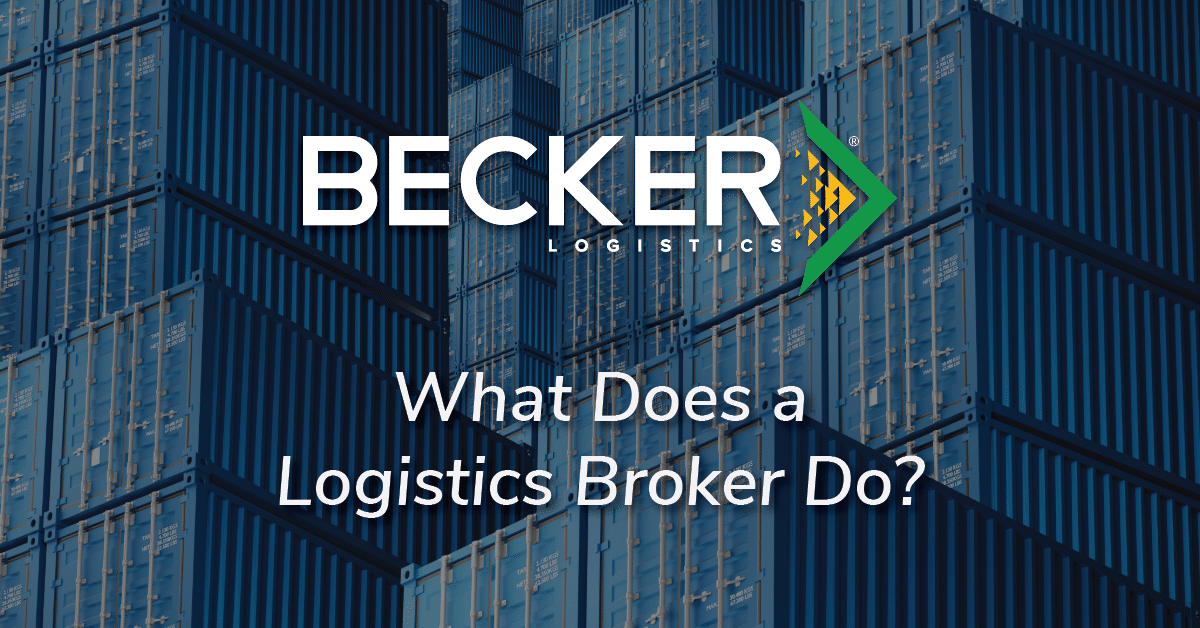Moving freight from one point to another may seem straightforward, but the reality is far more complex. With fluctuating market rates, strict delivery requirements, and endless carrier options, shippers often face challenges in keeping their supply chains efficient. This is where a logistics broker comes in. A logistics broker acts as the vital link between shippers and carriers, helping goods move smoothly, cost-effectively, and on time.
The Role of a Logistics Broker
A logistics broker serves as an intermediary who connects businesses that need to ship freight with carriers who have the capacity to move it. Instead of a company having to spend time searching for available trucks or negotiating rates, a logistics broker leverages their network and industry expertise to handle it.
Some of the key responsibilities include:
- Matching shipments with reliable carriers
- Negotiating competitive rates
- Coordinating shipment details from pick-up to delivery
- Providing visibility and communication throughout the process

By managing these responsibilities, a logistics broker frees up time for shippers to focus on their core business while ensuring their freight is handled with care.
Benefits of Working with a Logistics Broker
Partnering with a logistics broker offers several advantages, especially for companies that want consistent service without managing transportation in-house.
1. Access to Carrier Networks
Logistics brokers maintain large networks of vetted carriers across multiple modes, including dry van, refrigerated, flatbed, LTL, and more. This means shippers have access to capacity, even in tight markets.
2. Cost Savings
Because brokers move a high volume of freight, they often secure better rates than an individual shipper could on their own. These savings can be passed along to customers, making shipping more affordable.
3. Flexibility and Scalability
A logistics broker adapts to your needs, whether you ship a single load occasionally or manage thousands each year. Their ability to scale capacity quickly makes them a valuable partner for businesses of all sizes.
4. Expertise and Compliance
Qualified brokers understand regulations, equipment requirements, and best practices. For industries with strict standards, like food and beverage, automotive, or medical. This knowledge ensures compliance and peace of mind.
5. Time Savings and Efficiency
Coordinating freight can be time-consuming. A broker manages the details, tracks shipments, and provides communication, reducing the administrative burden on your team.
Choosing the Right Logistics Broker
Not all brokers are created equal. When selecting one, there are several considerations to keep in mind:
- Experience and Industry Knowledge: Look for a broker who understands your industry’s unique shipping requirements.
- Technology: Tools such as track-and-trace systems, electronic data interchange (EDI), and customized reporting provide visibility and improve performance.
- Communication: A broker should provide clear, consistent updates so you always know where your freight is.
- Reputation and Reliability: Seek out reviews, testimonials, or case studies that prove the broker’s ability to deliver results.
- Values and Service Quality: The right logistics broker should prioritize integrity, quality, and long-term partnerships.
Why a This All Matters
A logistics broker is more than just a middleman. They are a trusted partner who helps reduce costs, improve efficiency, and navigate the complexities of shipping. By leveraging their expertise and resources, businesses can streamline operations and deliver better service to their own customers.
Whether you are a small company just beginning to ship freight or a large enterprise managing a complex supply chain, the right logistics broker can make a measurable difference in your success.




